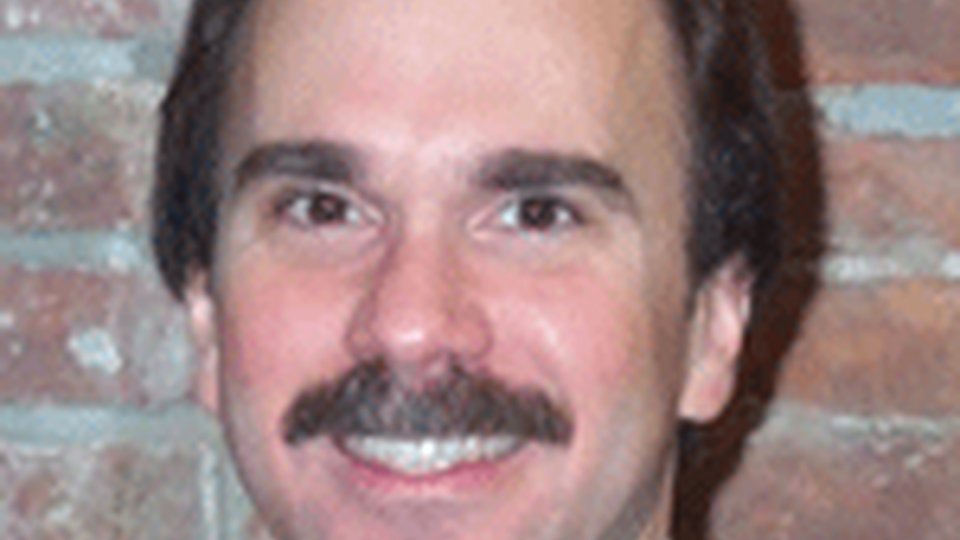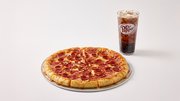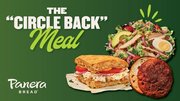Article
Bruegger's keeps on rollin'
Marking its 11th consecutive quarter of growth, Bruegger's CEO Jim Greco looks toward the future.

February 5, 2007 by Valerie Killifer — senior editor, NetWorld Alliance
When Jim Greco and Sun Capital Partners acquired Burlington, Vt.-based Bruegger's in 2003, it was no secret that the company had its share of ups and downs.
Marred by the closure of 200 locations between 1995 and 2001, the bagel-chain's outlook did not look good. But four years of steady growth and a precise plan of action, has placed Bruegger's back on top of its game. (Read also, The Bruegger's turnaround.)
On Feb. 5, Bruegger's reported its 11th consecutive quarter of same-store sales growth, marking the company's record-breaking progress since Greco took the helm.
He attributed the growth to a revised brand image (including décor) and the company's continued customer-service initiatives. In addition, the menu has been updated to include wraps, salads and soups, while staying true to its staple: bagels.
As Greco looks to the future for more Bruegger's growth, he weighs in on the trends and how Bruegger's will continue to roll along.
FC: Bruegger's reported its 11th consecutive quarter of same-store sales growth for both company and franchise-owned locations, something you must be very excited to report. What were some of the contributors to that growth and how do you plan to maintain the company's momentum?
JG: We think it is a combination of things. There is growing awareness of the changes we've made in décor, menu, etc. This awareness has generated a lot of momentum that we will build on with new products and promotions this year.
FC: It must have been tough dealing with the no-carb diet fad. Did that impact sales and is it still an issue for the company?
JG: To some extent we believe it did. When that peaked in January 2004 we were really ramping up a lot of our initiatives. Our sales actually were a little bit soft in January but it was also a cold, cold month. Right after the weather improved so did our sales, despite the no-carb trend. We think that a lot of our initiatives were working even back in January but the results were masked by the weather and perhaps the low carb trend. In any event, the trend passed quickly.
FC: Whole wheat and whole grain breads have really taken off. Where do you see this trend headed?
JG: We have several whole grain offerings. I think people now are focused on eating intelligently, which means eating a variety of foods but in moderation. I also think what people are focused on now are things that are in their foods that don't need to be.
We have been removing one-by-one trans fats from products that have them, mainly desserts. I think it gets back down to what I was saying. Instead of being focused on things like carbs, people are focused on eating intelligently, in moderation and eliminating from their foods things that don't need to be there.
FC: Speaking of foods we don't need but always love to eat, I know Bruegger's has started to expand its dessert offerings. Is this a trend you think we'll see much more of?
JG: We had a fairly limited dessert selection and had concluded we were missing an opportunity. There's a segment of the people who come in each day who want dessert. We decided we were going to broaden the selection. We also changed the way we displayed them and their presentation. The theory is if previously we were selling one guest out of 10 dessert and now we sell one out of 5 guests, you can make a significant impact on the average check, and that's what we've seen.
| |||||
| This story and all of our great free content is supported by: | |||||
 | INFOSoft Technologies The "Industry's MOST Versatile Restaurant Point of Sale Software Provider", InfoSoft's products accommodate all of your POS needs whether you have 5 or 5000 stores! | ||||
FC: Customer service continues to play a big role in Bruegger's success. Overall, how important is customer relations when it comes to building a brand and increasing its consumer reach?
JG: We think it is one of the most important things in building a brand. Guest services is as important as the food and that's how we treat it.
Our guest program is an evolving program that launched in January 2006. It is multifaceted and is designed to enhance the experience that our guest has. We actually look at both external guests and internal guests, our own people, because making our people knowledgeable at what they do and how they do it is a big part of being able to provide on a consistent basis great service to the outside guest. Parts (of the program) drop off when they are no longer needed.
FC: One example of Bruegger's improving its guest services has been the addition of several drive-thru locations. Has that been a successful initiative?
JG: Fifteen locations presently have drive-thrus and those locations have worked out really well for us. We are the only bakery-café that operates drive-thrus and they are something that our guests appreciate. When we (add drive-thrus to an existing location) we see about a 20 percent increase in sales.
We have plans to open more in the coming year. About 20 percent of our new openings will have drive-thrus.
FC: Bruegger's has plans to open 50 new locations in 2007 and 50 more in 2008. What are the company's plans for this expansion and do the locations include any new markets?
JG: Our goal is to have 17 company-owned and 33 franchised-owned locations each year. The majority of sites for company-owned locations have already been identified or are under construction. As for the franchise locations, we keep very close tabs on those to know where they stand in terms of sight discovery.
Some of the new units will be in five or so new markets. The rest will fill in existing markets.
FC: What are some of the trends you are seeing in fast casual and what would you like to see happen in the segment?
JG: I think one trend that is not unique to bakery cafes is breakfast. You hear a lot about chains looking to try to grow their breakfast business.
We talked about the concept of improving what is in the products that you offer; making the same menu more healthy is a trend that is very relevant to the bakery café segment or fast casual segment. One of the things that sets (fast casuals) apart from fast food is a healthier menu.
Fast casuals are leading the way in a number of categories. Previously, it's been more obvious things like appearance and the types of items on the menu such as salads and better coffees. Now, it's things not easy to see. It's the ingredients that are actually in the food and I think that trend will carry into other packaged food as well.
FC: Do you think the restaurant industry will continue its economic upswing? At some point do you think the trend to eat out will stabilize?
JG: My own feeling is that I believe that we are seeing some shifts in dining patterns. I think that fast casuals, without trying to overstate it, have been a good amount of the cause of that. People are time pressed, especially at lunch and breakfast. They also are becoming more aware of what they eat.
The time required in casual dining venues is difficult for people as they become more pressed. People before weren't willing to go out and make the sacrifice involved with fast food in terms of quality, but fast casual provides an alternative. I think these trends will continue for some time.
Nothing lasts forever. In 1950, there were 150 million people in the United States and 15 percent ate out. Today, there are 300 million people and 50 percent of people eat out. In 50 years, that is huge growth. It can't continue at that pace, it's bound to moderate some as time goes on.
Related Media
Food & BeveragePresented ByOracle
Presented ByOracle












